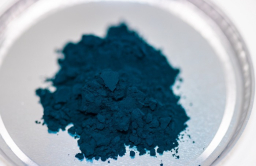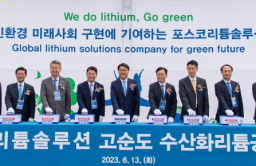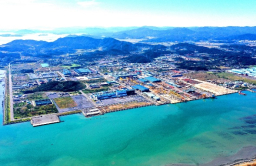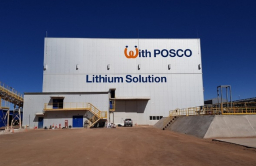-
KOSPI 2812.05 +41.21 +1.49%
-
KOSDAQ 756.23 +6.02 +0.80%
-
KOSPI200 376.54 +6.64 +1.80%
-
USD/KRW 1373 3.00 -0.22%
POSCO completes construction of Korea’s 1st lithium hydroxide plant
Batteries
POSCO completes construction of Korea’s 1st lithium hydroxide plant
The company has also built an electrical steel plant as part of the steel giant’s green push
By
Nov 29, 2023 (Gmt+09:00)
3
Min read
News+
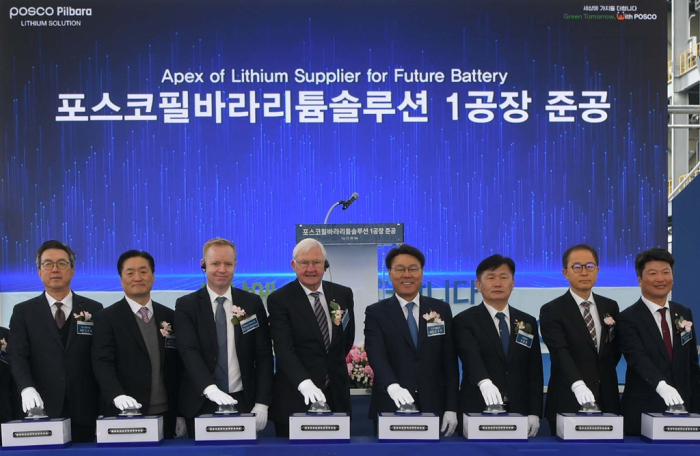
POSCO Holdings Inc., the investment and holding company of South Korea’s steel giant POSCO, said on Wednesday it has completed the construction of a lithium hydroxide plant – the first of its kind in the country – amid a growing trend of resource nationalism worldwide.
The plant, located at the Yulchon Industrial Complex in Gwangyang, South Jeolla Province, is part of the POSCO Group's strategic plan to establish a battery material value chain ranging from securing and processing battery raw materials like lithium and nickel to recycling used batteries.
Separately, POSCO said it has completed the construction of a factory that produces non-oriented electrical steel, known as Hyper NO, at Gwangyang Steelworks, home to the company’s second steel complex.
Non-oriented electrical steel is used to make the motor core, a key electric vehicle part.
The lithium hydroxide plant with an annual production capacity of 21,500 tons will be operated by POSCO-Pilbara Lithium Solution Co., a joint venture between POSCO and Australia’s lithium miner Pilbara Minerals Ltd., launched in 2021.
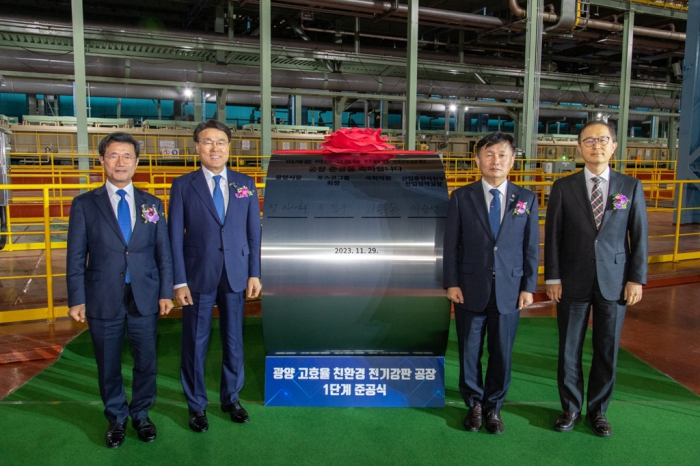
POSCO said it will build a second lithium hydroxide plant with the same production capacity by 2024.
The combined 43,000 tons of lithium hydroxide a year is enough for batteries to run 1 million EVs.
In June, POSCO said it had broken ground on the first lithium hydroxide plant with an estimated 575 billion won ($451 million) investment. The company said the factory will be fully operational by 2025.
RESPONSE TO US IRA
With the new lithium hydroxide plant, POSCO said it could more effectively deal with burgeoning demand for EV battery materials and respond to the US Inflation Reduction Act (IRA), which gives tax breaks and other benefits to EV makers and suppliers of EV components and battery materials if they are sourced from US partner countries.
POSCO said it will be entitled to the IRA benefits as it secures iron ore from Australia and Argentina and processes it to produce lithium hydroxide in Korea.
The steel giant, which has entirely relied on imports for its lithium hydroxide needs, said it has developed a technology to extract lithium hydroxide from lithium ore.
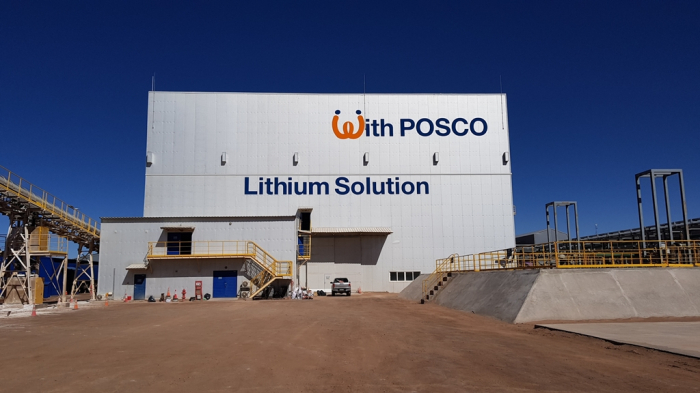
Demand for lithium hydroxide as a key raw material for high-nickel cathodes is growing because its mix with nickel boasts higher energy density and better charge-discharge performance.
POSCO Group said last year it will invest an extra $1.09 billion, or 5 trillion won, in its lithium production facility near the salt flat of Salar del Hombre Muerto in northwest Argentina.
In 2018, POSCO acquired lithium reserves at a salt lake in Argentina for $280 million. A 2020 assessment estimated the size of lithium reserves at the lake at 13.5 million tons, more than six times POSCO’s initial estimate of 2.2 million tons.
Lithium is a core mineral used to make the cathode, a battery component that accounts for up to 40% of battery manufacturing costs.
HYPER-NO
POSCO Holdings said last year the company will invest 25 trillion won ($20 billion) in rechargeable battery projects, including purchasing stakes in battery material companies, mineral mines and related facilities, by 2030.
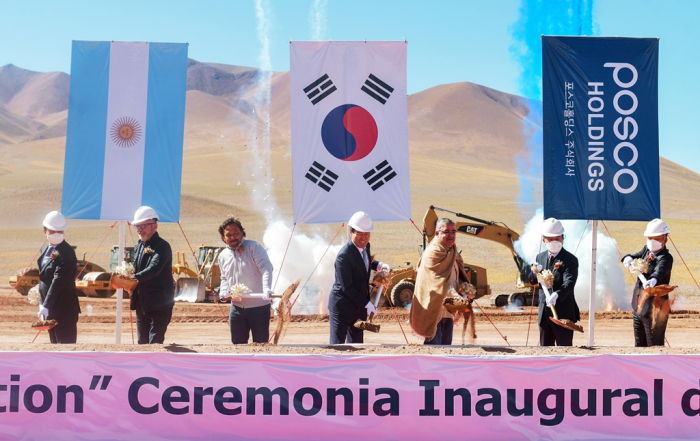
The huge spending plan is designed to help POSCO build its own battery metal supply chain and reduce Korea’s reliance on Chinese companies.
Korea is home to leading battery makers, including LG Energy Solution Ltd., SK On Co. and Samsung SDI Co., which heavily rely on Chinese companies for battery raw materials.
On Wednesday, POSCO said it plans to build a second non-oriented electrical steel plant with the same production capacity as the first plant by 2024 to meet growing demand for EV steel and high-end home appliances.
Once the second facility is up and running, POSCO will have an annual production capacity of 400,000 tons of Hyper NO steel at its Pohang and Gwangyang plants.
Separately, the company is considering an electrical steel plant in the US to reach a global production capacity of 1 million tons by 2030.
“With the latest construction of the lithium hydroxide and the Hyper NO plants, we aim to take the lead in the industry’s move toward electrification,” said POSCO Group Chairman Choi Jeong-woo.
Write to Mi-Sun Kang at misunny@hankyung.com
In-Soo Nam edited this article.
More To Read
-
Nov 27, 2023 (Gmt+09:00)
-
Jun 13, 2023 (Gmt+09:00)
-
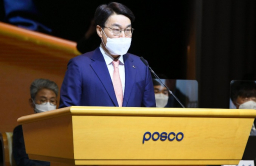 Corporate strategyPOSCO to comply with IRA rules to access battery tax breaks: chairman
Corporate strategyPOSCO to comply with IRA rules to access battery tax breaks: chairmanJun 01, 2023 (Gmt+09:00)
-
May 02, 2023 (Gmt+09:00)
-
Oct 11, 2022 (Gmt+09:00)


